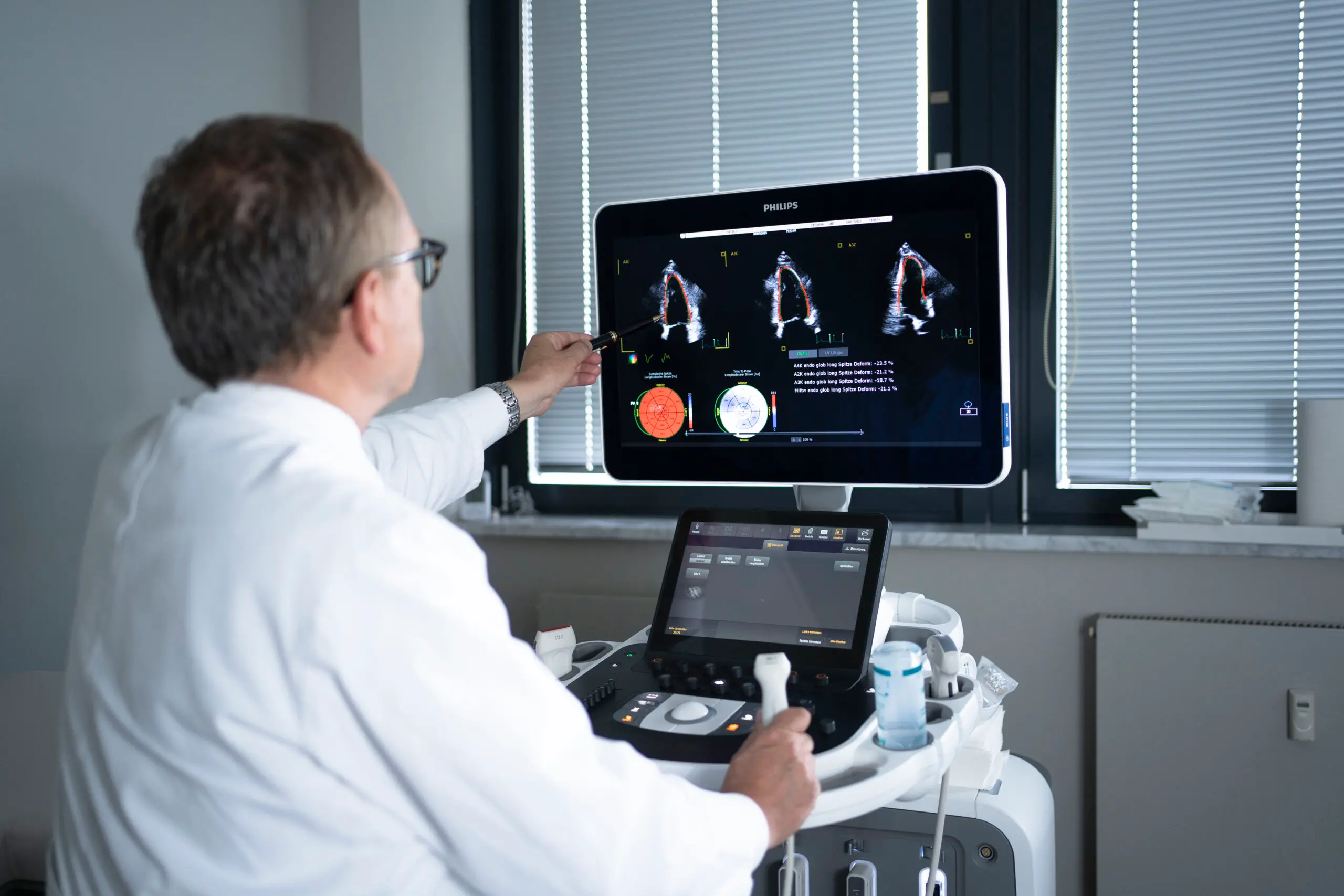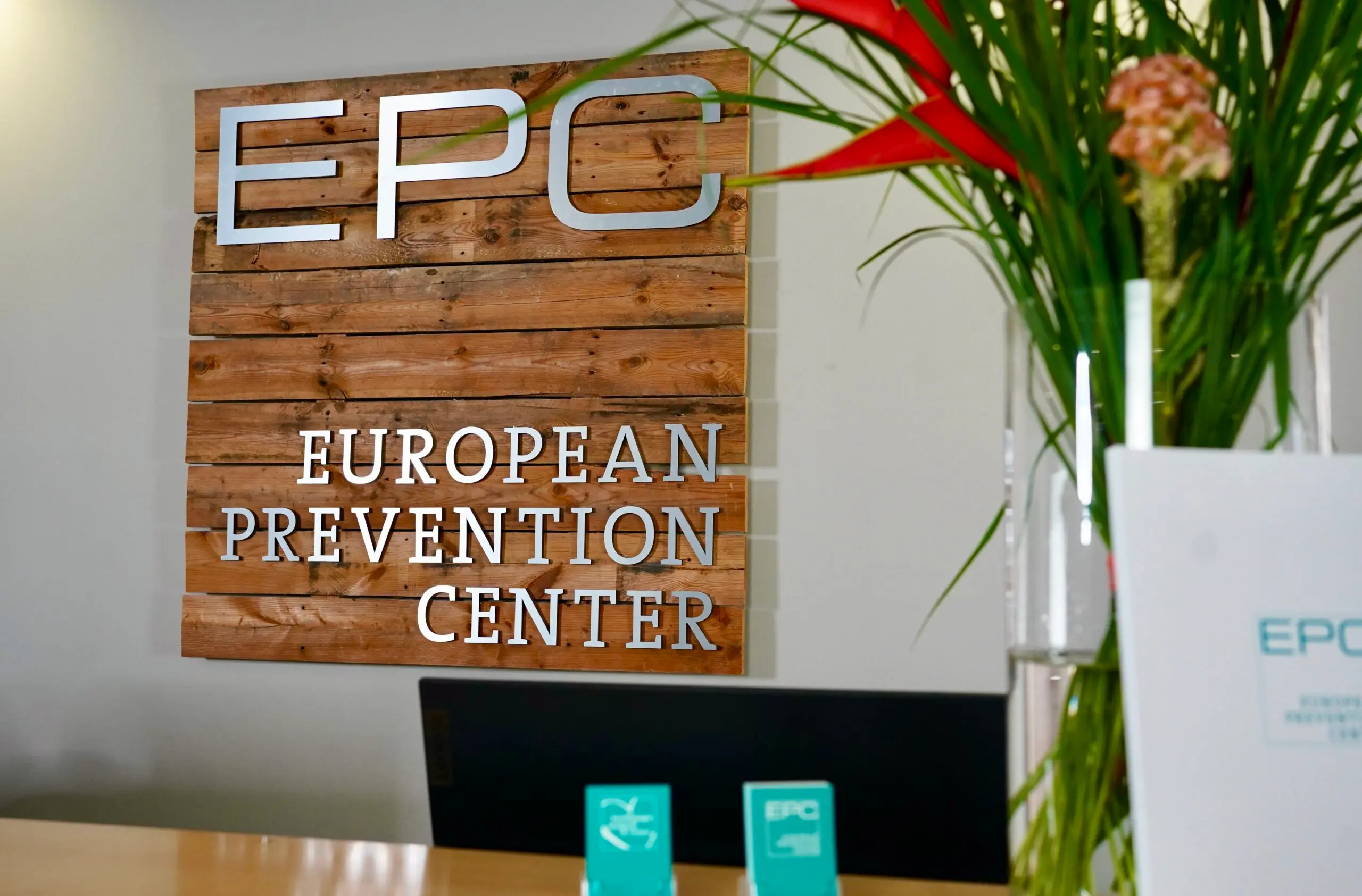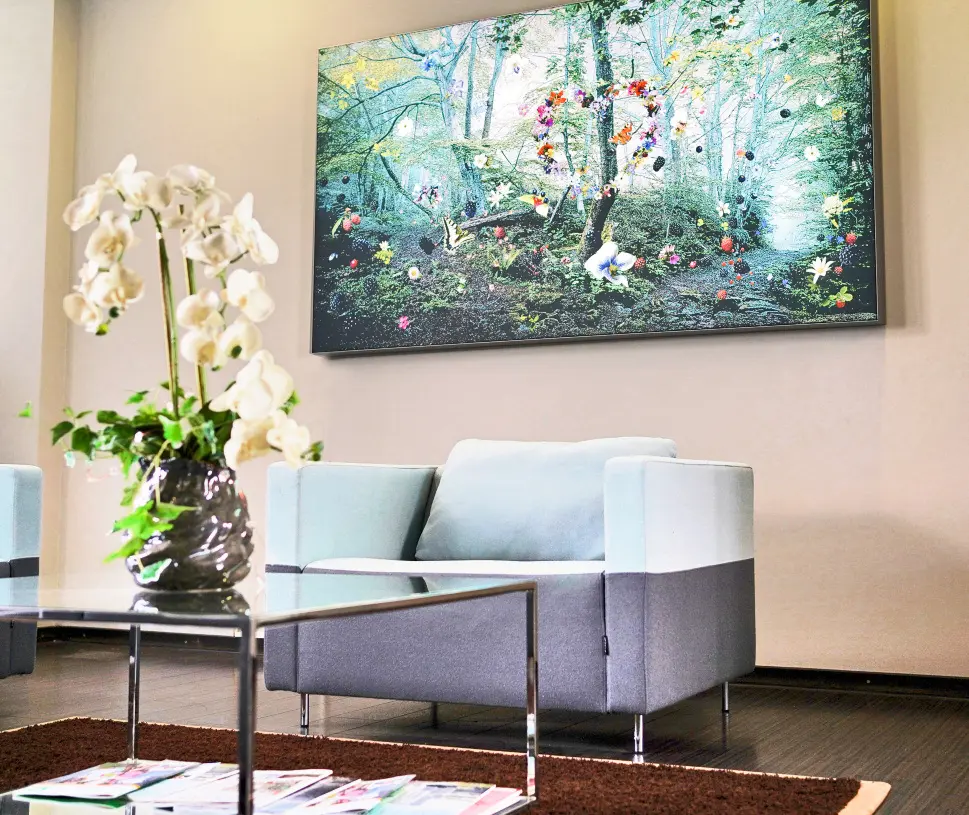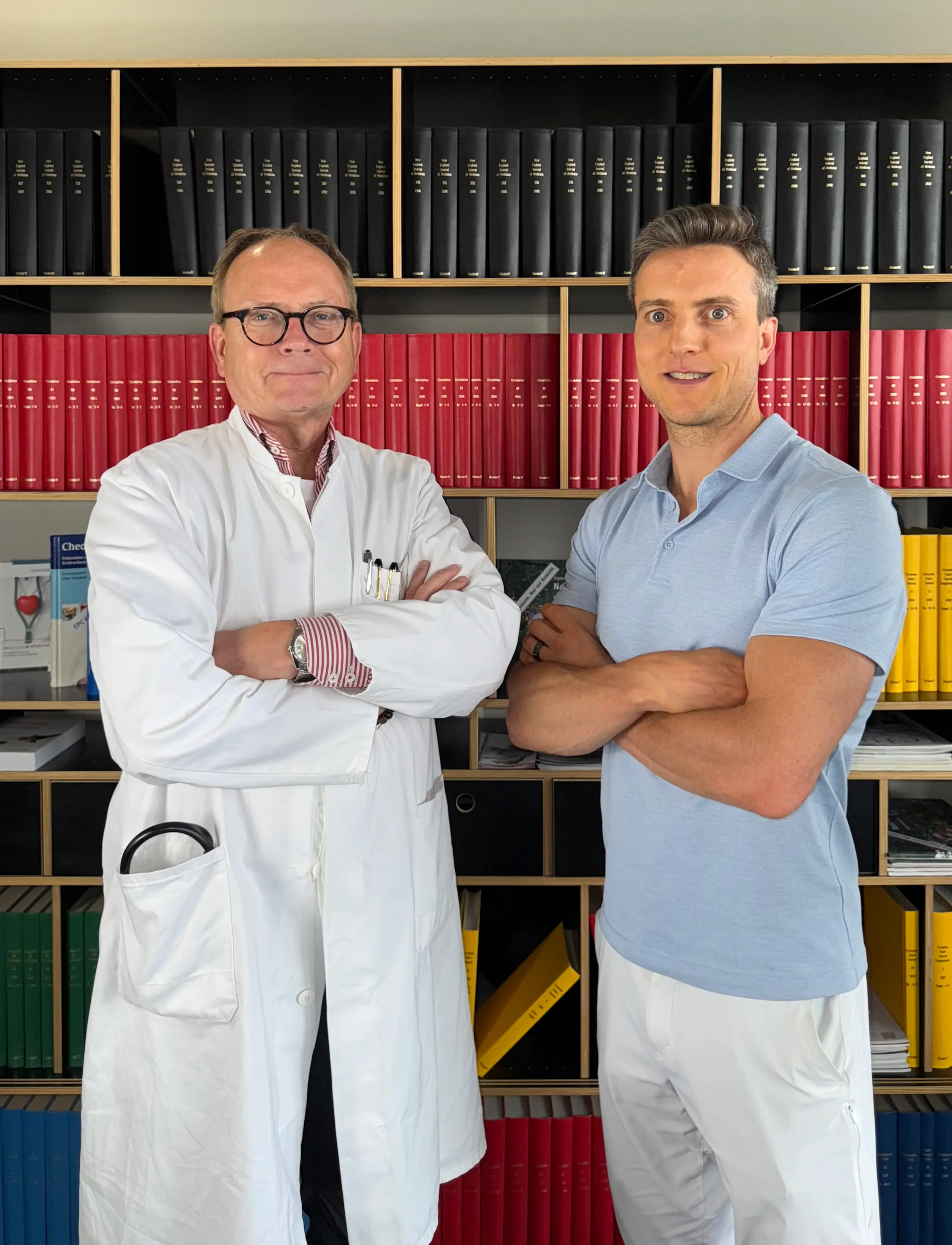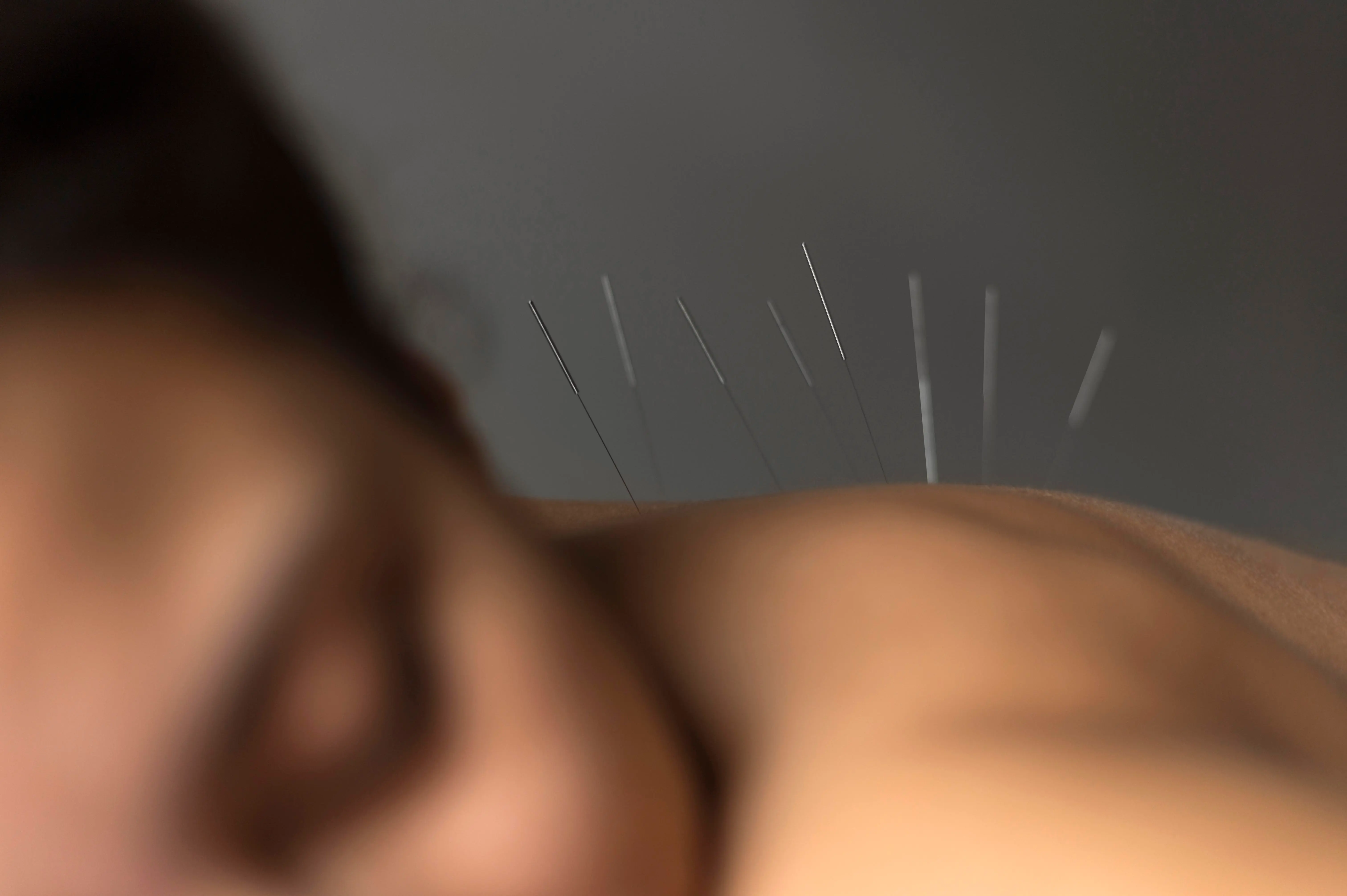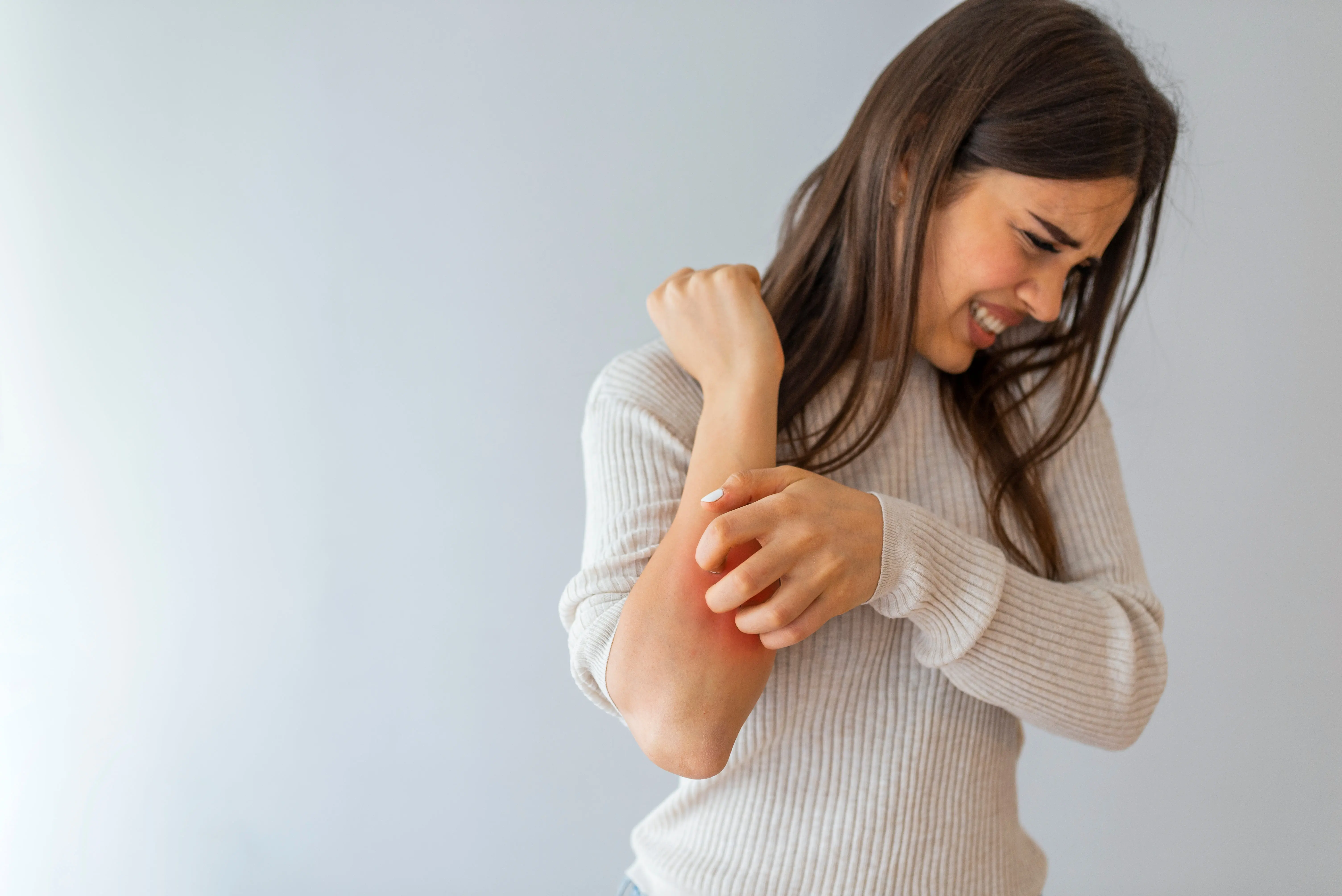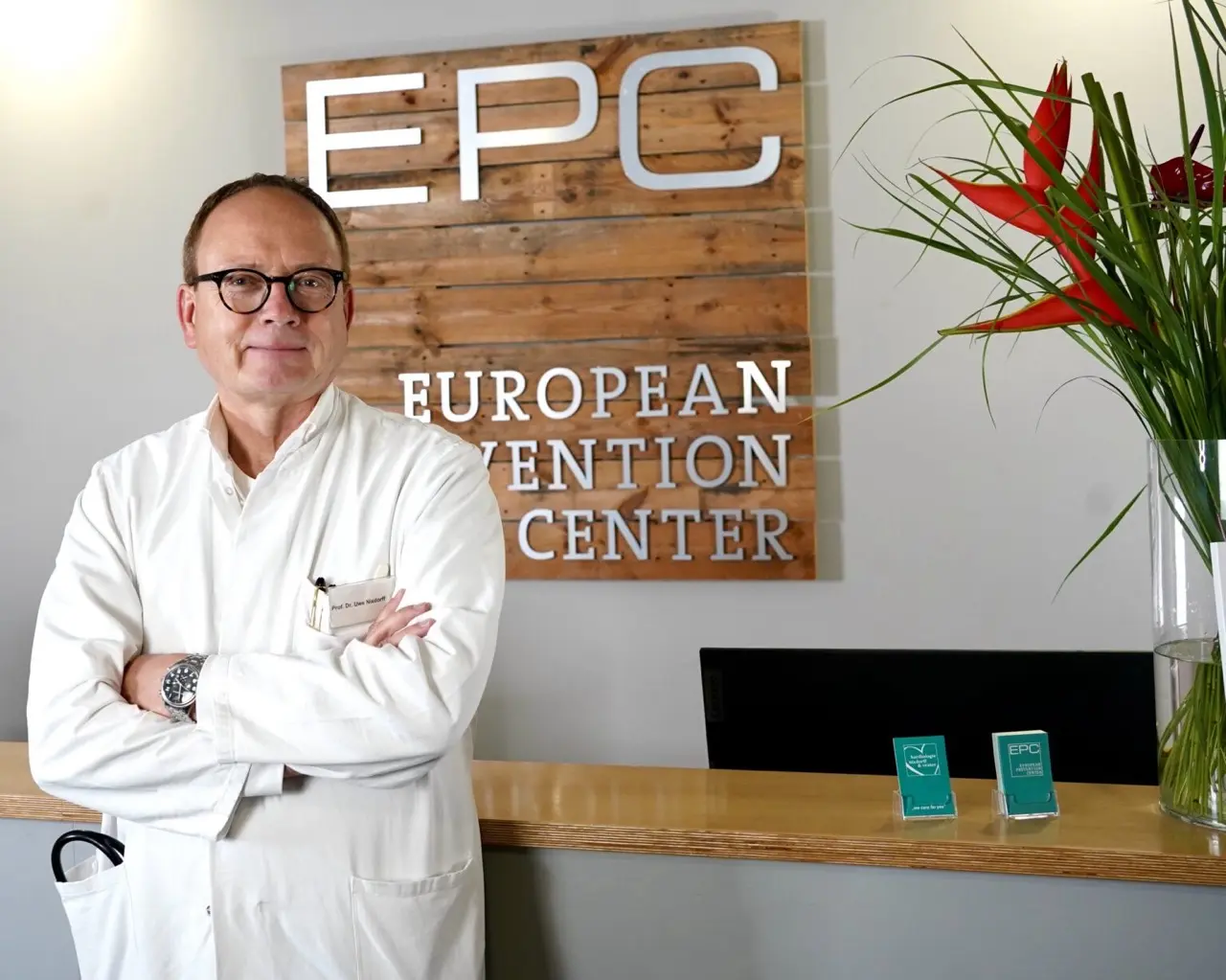
© PMC
- Düsseldorf
- Cardiovascular Medicine
Prof. Dr. Uwe Nixdorff
European Prevention Center (EPC)
Services
To serve the healthy as a physician – this, according to Prof. Dr. Uwe Nixdorff, one of the leading figures in preventive medicine in Germany and Europe, is his mission. What was once a principle in ancient Chinese medicine is now a true paradigm shift: away from treating symptoms and toward a form of medicine that actively preserves health. He guides individuals who want to take responsibility for their health before symptoms arise, demonstrating how prevention can become medicine at the highest level.
Prof. Nixdorff, a cardiologist and internist, came to prevention through his scientific work, particularly in the field of imaging techniques such as echocardiography, magnetic resonance imaging (MRI), and multi-slice computed tomography (MSCT). The transition from early detection to preventive medicine was a natural step – and with the founding of his European Prevention Center (EPC) in Düsseldorf, he combined the best of both worlds.
High-Level Check-Up Medicine
His professional background is extensive: from studying medicine in Frankfurt to training at renowned clinics in Johannesburg, Munich, and Boston, ultimately leading to the establishment of his private cardiology practice in Düsseldorf, which he still operates today. Continuing education has always been close to his heart – he designed and led a master’s program (M.Sc.) for physicians at Dresden International University (DIU) and conducts advanced courses through the GSAAM (German Society of Anti-Aging Medicine) for colleagues who wish to implement modern anti-aging and preventive approaches in their own practices. He is also well connected nationally and internationally, contributing voluntarily to various professional societies, as well as to the Senate of the Economy (Health Commission), and serving as chairman of the Health Expert Council of the German Association for Small and Medium-Sized Businesses (BVMW). His primary goal: to advance the cause of prevention both socially and politically.
“Not only adding more years to life, but also more life to those years.”
Prof. Dr. Uwe Nixdorff
Tailored and Evidence-Based
What sets Nixdorff’s approach to check-up medicine apart? It goes far beyond ECGs or standard ultrasounds.
“We’ve developed structured preventive pathways based on medical algorithms. These workflows begin with a thorough medical history, during which all risk factors are identified – using validated scoring systems that allow for precise risk assessment,” explains Prof. Dr. Uwe Nixdorff. “This enables evidence-based decisions about which additional tests are truly relevant for each individual – a form of preventive triage.”
The result is a tailored, scientifically grounded concept rooted in the principles of personalized and precision medicine. “We also go far beyond the standard diagnostics offered in typical clinics,” Nixdorff adds. In addition to state-of-the-art imaging technologies, the EPC offers advanced diagnostics such as heart rate variability (HRV) measurement – a highly sensitive ECG that captures psychosomatic stress levels – and pulse wave analysis (PWA), which enables early detection of arterial stiffness.
His approach is also holistic: to offer a full spectrum of diagnostics and therapy, the EPC collaborates closely with specialized partners in vascular surgery, neurology, genetics, dermatology, urology, gynecology, and orthopedics.
Empathy and Time Matter
In addition to medical expertise, empathy and time play a crucial role. “Without empathy, you can’t motivate people to adopt a healthier lifestyle. Many behaviors are not due to ignorance but are emotionally driven,” he explains. Smoking, for instance – everyone knows it’s harmful, yet many still do it. The reasons are often emotional. “You can’t reach people in five minutes; you need time.” And that’s exactly what he provides.
“We conduct only three to four check-ups per day,” says Prof. Dr. Uwe Nixdorff, emphasizing the intensive and exclusive nature of preventive medicine at his European Prevention Center (EPC).
“The gap between lifespan and healthspan is currently around 15 years. That gap needs to be reduced.”
Prof. Dr. Uwe Nixdorff
Everything Under One Roof, All in One Day
What does a check-up day at the EPC look like? Upon arrival, patients are welcomed into a private lounge with its own bathroom and internet access – a personal retreat for the entire day. The medical history interview takes place here, and patients are picked up from this space for each of their scheduled examinations.
Even after the check-up, the EPC goes the extra mile. Follow-up care includes personalized advice and long-term guidance toward a healthier lifestyle. Patients with abnormal findings are never left on their own – they are supported every step of the way. Whether it's shifting the mindset to appreciate the value of early detection or urgently addressing serious diagnoses (such as cancer) with a same-day referral to a specialist at a university hospital – the EPC benefits from a strong and well-established medical network.
Mobile Prevention
A further dimension of prevention is delivered through the EPC’s mobile check-up service. Via the subsidiary HANAKO GmbH, Prof. Nixdorff brings prevention directly to the people – conducting on-site check-ups for companies as part of corporate health management (BGM). This is made possible by condensing select EPC programs and using modern technology: fully digital processes, miniaturized diagnostic devices like laptop-based ultrasound, and dry chemistry systems that deliver up to 50 lab values within minutes on-site (point-of-care diagnostics).
“Prevention must be approached holistically.”
Prof. Dr. Uwe Nixdorff
A Guiding Principle
“Not only adding more years to life, but also more life to those years” – this is the guiding principle of Prof. Dr. Uwe Nixdorff. “This also means reducing the burden of disease and improving quality of life, especially in middle and older age – in other words, the compression of morbidity.” Currently, the gap between lifespan and healthspan is about 15 years. That must be reduced.
His advice: starting in your mid-thirties, make use of all check-up options covered by your health insurance – even if they don’t go as far as those offered at his center. It’s always better than nothing. The biggest challenge for future medicine lies in not waiting for symptoms to trigger diagnostics – because often, there are none yet. It’s nothing less than a paradigm shift.
Work-Life Balance?
For him, it’s more of a trigger word. He describes himself as a workaholic – in the best possible sense: doing what you love brings fulfillment. Asked to describe himself in three words? “I am within.” A major contributor to his inner balance is his love of art. For him, art serves as a bridge between medical imaging, the art of healing, and self-realization through mindfulness and self-efficacy. That’s why his practice regularly hosts exhibitions and vernissages – another of his heartfelt passions.
